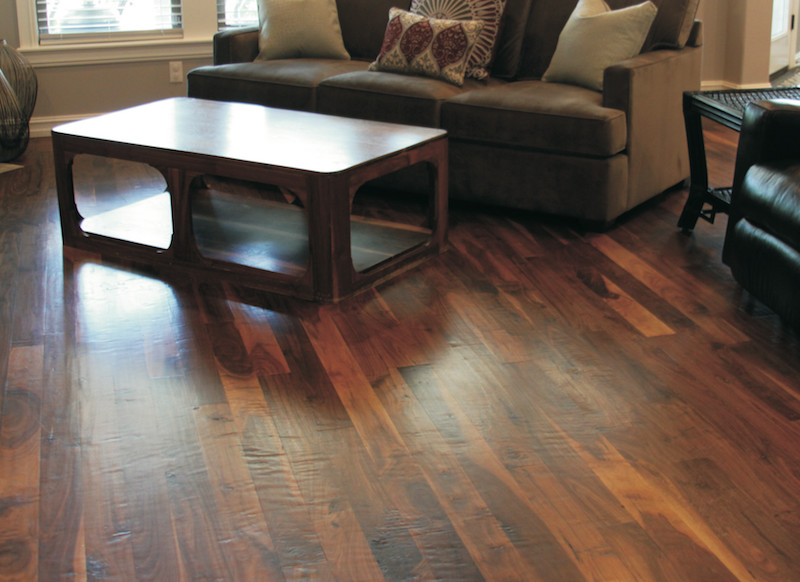The flooring in your home is an important choice. It can impact the look, feel and functionality of your space, sometimes for decades to come. Many people choose flooring based mainly on appearance—whether they like the look, the finish, the texture, etc. But different types of wood have different levels of hardness, as well. Hardwoods are dense and heavy, while softwoods tend to be lighter and more flexible. The question many people ask is, does hardness matter when picking your flooring?
In a word, yes. Let’s talk about why you need to think about hardness versus softness when choosing your wood flooring materials.
The Janka Hardness Scale
When talking about wood types for floors, you’ll often hear references to the Janka rating of different species of wood. Specifically, the Janka Hardness Scale is based on a test that measures how much force in pounds per square inch (PSI) is needed to embed a .444-inch steel ball into the wood up to half its diameter. Almost every type of wood used for floors or furniture has been measured using the Janka Scale, with ratings that range from the low 300s to over 4000. The higher the Janka rating, the harder the wood.
Just for context, among the most common types of wood used in wood flooring…hickory wood is on the higher end of the spectrum, with a Janka rating of around 1820. White pine is one of the softest, with a rating of about 420. (Most evergreen varieties are softwoods.) White oak, the most common type of floor we install, is around 1335, and this is considered an all-around good range for hardwoods in general. Maple woods tend to be a bit harder, and cherry tends to be softer. And of course, if you want an exceptionally hard floor, you can go with one of the more exotic (read: expensive) species like rosewood or ebony, which are in the 2000-3500 hardness range. You don’t have to know the exact Janka rating to determine whether a wood type is right for you, but it gives us a nice frame of reference.
Pros and Cons of Using Hardwoods
As with anything else, there are benefits and drawbacks to choosing hardwood floors versus softwoods. On the plus side, hardwood floors are more durable and can withstand heavier traffic and use without showing scratches or damage. They’re also generally easier to clean and are more resistant to stains and mold, and they can also be refinished several times throughout their lifespan. The biggest negative is that hardwoods tend to be more expensive to order and install. Generally, the harder the wood, the higher the cost.
Pros and Cons of Using Softwoods
There are usually two reasons people choose softer woods for their floors: the appearance and the price. Softwoods tend to be lighter in color and texture, which may be important to the overall design of the space. They are also more affordable, mainly because softwoods grow faster and are therefore more available. Because softwoods are more easily replenished because they grow faster, many people also choose them because they are a more eco-friendly, sustainable wood choice. However, the biggest drawback (as you might guess) is that softwoods don’t hold up as well against wear-and-tear. They are more prone to scratches and dents.
Choosing The Wood Floor That’s Right for Your Home
Ultimately, deciding on a wood type for your wood floors will depend on the amount of traffic you have in your home, your budget, and your personal aesthetic. If there are kids or pets in your home, hardwoods may be a much better choice than softwoods, because they’ll stand up to more abuse with less damage. However, if appearance is more important than flexibility and durability—and if your floors don’t have to support a lot of traffic—softer wood floors may be the way to go. The most important thing is knowing what your needs and priorities are; there’s never a one-size-fits-all answer to choosing your hardwood floor material.
Whether you choose a harder or softer species of wood for your new floors, the experts at Renaissance have the experience and skill to make sure it’s installed correctly. For a free estimate for your next hardwood flooring project in Tulsa, Broken Arrow, Catoosa, Claremore and other parts of Green Country, give us a call at 918-298-4477.

